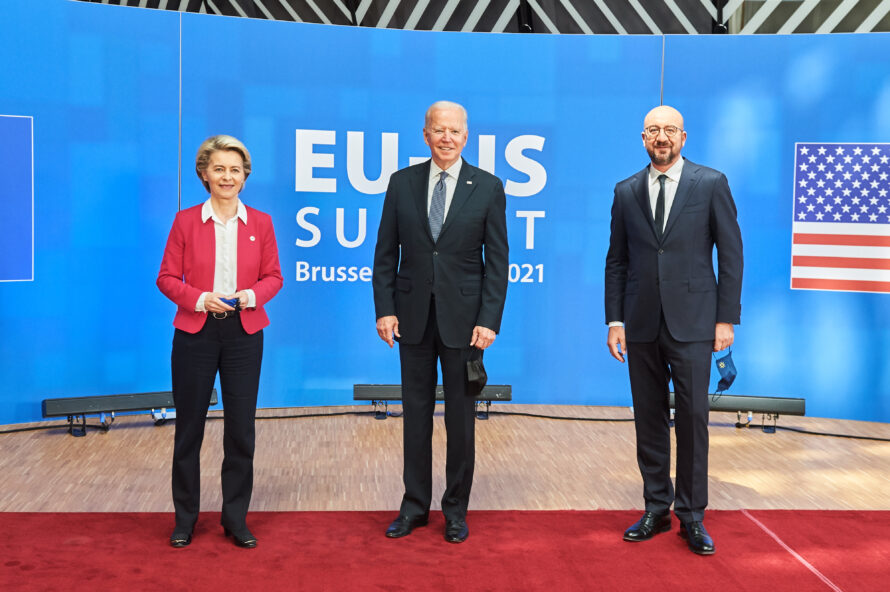
In a joint declaration following their summit held today in Brussels, the European Union and the United States have underlined their shared concerns about China’s human rights violations, including in Tibet.
The EU was represented by the President of the European Council Charles Michel and the President of the European Commission Ursula von der Leyen, while President Joe Biden represented the US.
This was the first visit of the new US president to Europe after his election, as well as the first summit between the EU and US during his presidency. The last EU-US leaders’ meeting took place in Brussels in May 2017.
Ahead of the summit, Michel said that the three presidents aimed at “rebuilding a strong” EU-US alliance.
Human rights violations in Xinjiang and Tibet
The leaders addressed a wide range of issues of common concern, including foreign affairs and the situation in the People’s Republic of China. At the end of the summit, they issued a joint statement which mentions that Brussels and Washington vow to “closely consult and cooperate.”
The declaration also speaks of “our respective similar multi-faceted approaches” to Beijing, which include “elements of cooperation, competition, and systemic rivalry,” and mentions“ ongoing human rights violations in Xinjiang and Tibet, the erosion of autonomy and democratic processes in Hong Kong; economic coercion; disinformation campaigns; and regional security issues.”
At the press conference following the summit, von der Leyen said: “When it comes to human rights and human dignity we are systemic rivals. We have to speak out on that and it is very clear that it is the main issue that clearly divides us.”
China has ruled Tibet, a historically independent country, for more than 60 years. As a result of China’s decades of human rights violations against the Tibetan people and attempts to destroy their cultural identity, Tibet is now the least-free country on Earth, in a tie with Syria, according to the watchdog group Freedom House.
The Chinese government is also committing genocide against Uyghurs in Xinjiang (which Uyghurs know as East Turkestan) and cracking down on pro-democracy activists in Hong Kong.
EU-US relations and China
In its communication, “A new EU-US agenda for global change,” adopted in December 2020, the EU stated that the EU and the US agree on the strategic challenge presented by China’s growing international assertiveness, and highlighted the new EU-US Dialogue on China as a key mechanism for advancing their interests and managing their differences on this issue.
A few days later, the European Council held a discussion on EU-US relations, in which European leaders underlined the importance of a strong strategic transatlantic partnership based on common interests and shared values.
Coordinated sanctions against Chinese officials
Several western countries have imposed sanctions on officials in China over rights abuses against the Uyghur community. The sanctions were introduced as a coordinated effort by the EU, US, United Kingdom and Canada. China responded with its own sanctions on European officials.
As a reaction to these Chinese countersanctions, the European Parliament decided last month to freeze the EU-China Comprehensive Agreement on Investments until China lifts its sanctions.
The European Parliament has also called on the EU to increase its coordination and cooperation with the US in the framework of a Transatlantic Dialogue on China, including in regard to a coordinated approach on measures to address human rights violations and requests that this dialogue provide a strong parliamentary dimension.
ICT quote
The International Campaign for Tibet’s EU Policy Director Vincent Metten said:
“ICT applauds the mention of the appalling human rights situation Tibet in the joint statement adopted at the EU-US summit. This is a very encouraging and constructive step in the transatlantic cooperation vis-à-vis the PRC. It is crucial that like-minded states continue to coordinate their foreign policies on China and show their determination to react and act together at the multilateral level to condemn the serious abuses on human rights done by Beijing and President Xi Jinping.”